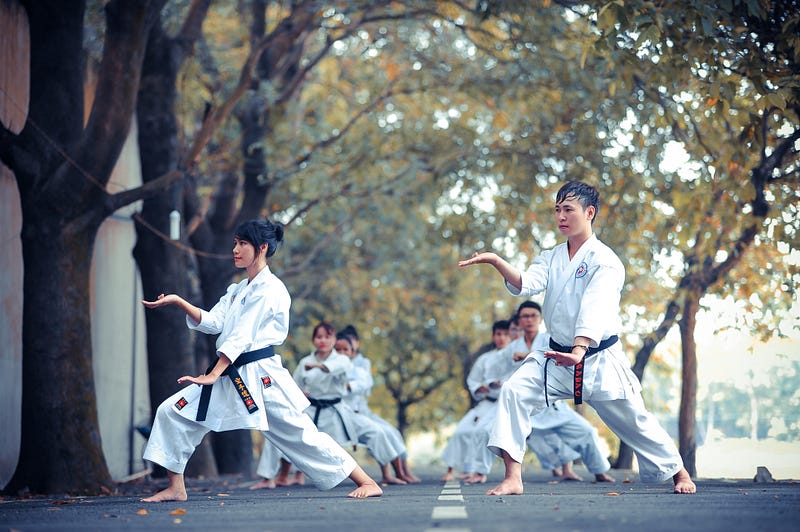You Can Become "Moderately Good" at Any Skill in Just 40 Days
The key lies in a combination of specificity, atomization, and diligence.

You’ve heard it before: it takes ten thousand hours to master a subject. That’s twenty hours of practice every week for ten years. And sure, by the time you’ve put your attention on something for that long, you’re going to be a true master at it. But what about when you just want to get kinda-sort “okay” at something?
My wife and I like to joke that we’re Unenlightened Generalists because we strive to know a little bit about as many things as possible. Life’s about learning and creation, so why not learn as much as possible!?
The good news is: anyone can join us in our pursuit of becoming reasonably good at any task, and it takes just a fraction of the 10,000 hours required for mastery.
- You need to set a specific goal.
This is the biggest mistake that new generalists make. Don’t set nebulous goals; be specific.
- Don’t set yourself the goal of learning Tai Chi, set yourself the goal of perfecting the first quarter of the Chen-style form.
- Don’t say, “I want to learn to play guitar!” Instead, focus on learning your top two favorite songs on guitar.
2. You need to atomize your goals if you want to achieve them.
Skills are easier to learn when you break them into super small, manageable chunks. If you want to learn a Tai Chi form, start by perfecting the first stance.
Learning guitar? Focus in on your two favorite songs, then atomize those further by just learning the chords. Pick three chords and switch between them as quickly as possible. Build the muscle memory and manual dexterity.
3. Remove barriers to practice (and enforce barriers against distraction).
Life is busy, brutish, and short. Given this, it’s vital that we don’t waste time struggling over unnecessary obstacles to meet our goals. We need to remove any points of friction that stand between us and what we want to achieve. And we also need to learn how to reinforce barriers against distraction.
Try to stack good habits one atop the other; keep the musical instrument you want to learn close at hand rather than locked in its case; and build ritualized habits into your day. This is also why it’s vital to atomize your goals: we can more easily stack five small habits than two large habits.
We learn better when we make our learning consistent. So, it may seem better to spend four hours working hard on learning something, but the habit of working on that project every day is better than cramming for it at the last minute.
The earliest hours of skill acquisition are the most important. Whatever you start with will become the foundation of what comes later. My Tai Chi instructor always made this point about the Chen form that he preferred teaching. So many new students coming from other schools would have weaknesses in their practice that needed to be slowly and painfully corrected — a process that takes more time than learning something right from the beginning.
Put in around twenty hours of high-quality practice at the start, and it will make the rest of your learning easier and better. Be aware that the first ten hours of practice are also the hardest. You will likely want to quit during this time, with the sad irony being that, once you get past this point, you might actually be close to attaining your goal (if you set yourself an attainable goal).
What does practice look like?

Practice must be deliberate and concentrated. If you practice halfheartedly, you’ll find that it takes far more time to meet your goals than it otherwise might. If you want to reach moderate proficiency in something in just 40 days, you need to spend about 30 minutes of intense practice on it every day.
You need to focus in on the skill subsets: the pieces of the skill you wish to attain. Master the basic posture, the first three guitar chords, or a single type of paint brush technique. Then, build from there to reach your goal of perfecting part of a Tai Chi form, playing your favorite song, or paining landscapes.
Don’t give in to the temptation to skip a day and just practice for longer the next day (you probably won’t, and it won’t be as effective).
Keep your expectations realistic! Set your goal at the beginning and stick to it.
And remember, it’s always better to be able to do something than it is to have no new skill at all. Even a little improvement in any area of your life will filter in to every other area of your life. By improving one thing, you improve the whole.
Follow this guide, and you can tackle any goal and achieve any dream.
